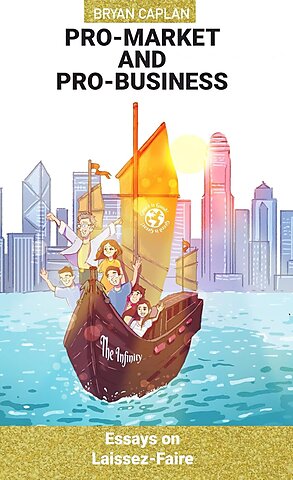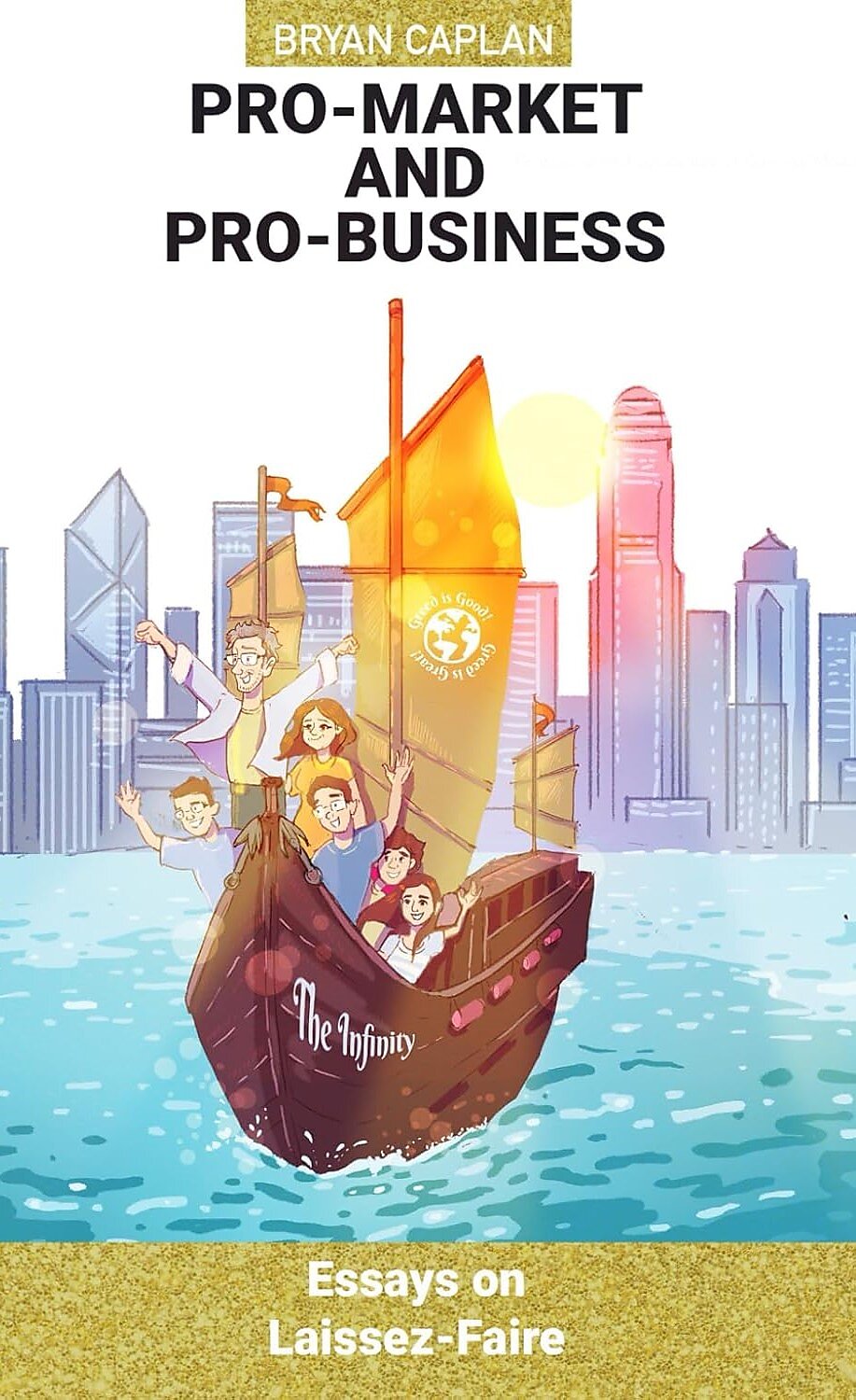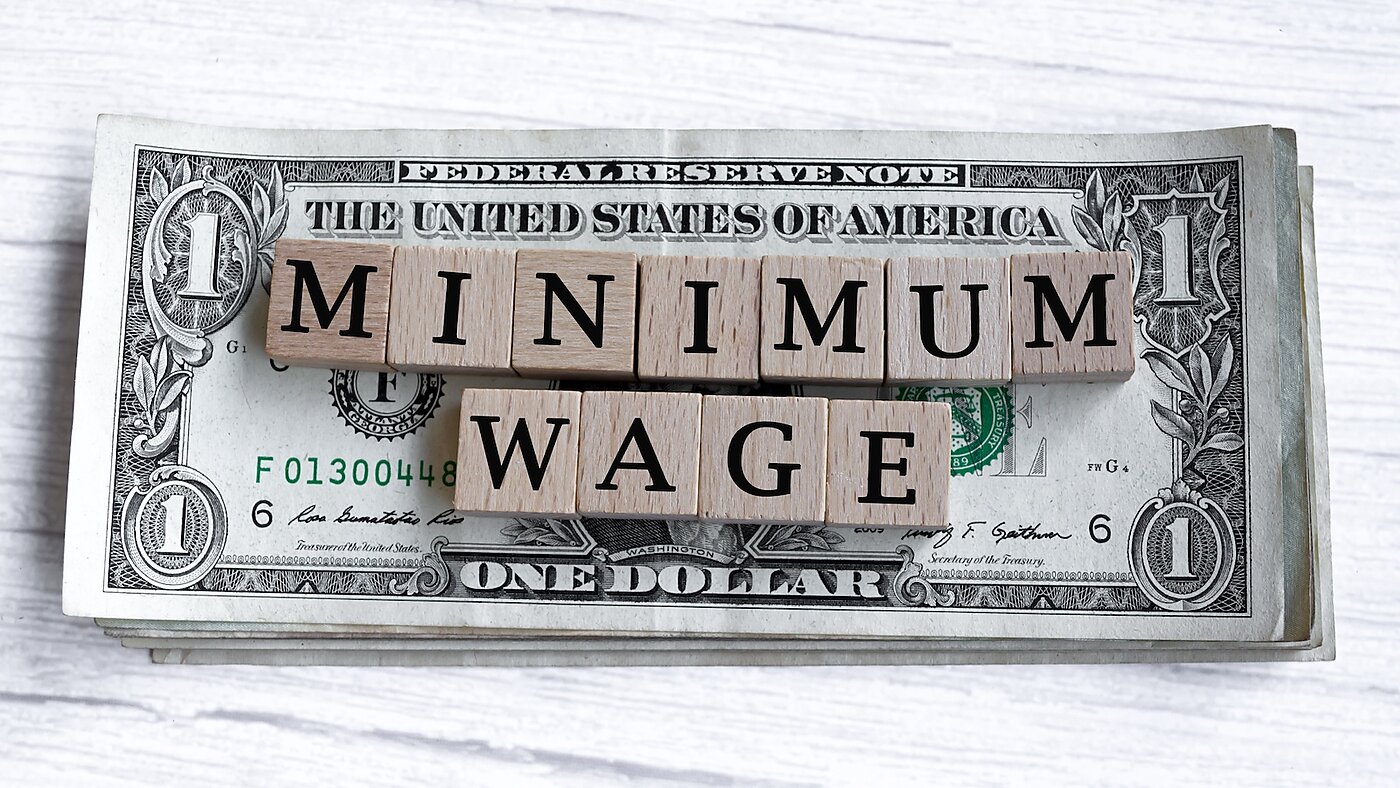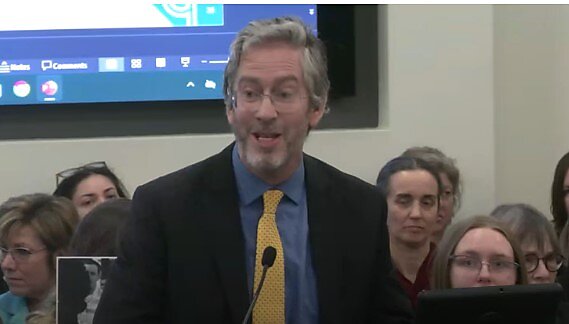Cato Adjunct Scholar and New York Times bestselling author Bryan Caplan has published a new book, Pro-Market AND Pro-Business: Essays on Laissez-Faire. In this volume, Caplan, a professor of economics at George Mason University, explains how free markets, government regulation, and government ownership actually work. One of Caplan’s main lessons is that free markets don’t run on autopilot—they run on people: entrepreneurs and businessmen who are heroic because they solve problems and drive progress. An excerpt of the book is published below.
Pro-Market AND Pro-Business
Both economists and libertarians often emphatically state, “I’m not pro-business. I’m pro-market.” What does this slogan really mean?
Sometimes, they’re just saying, “I oppose mandatory cartels, bailouts, subsidies, protectionism, licensing, and other government intervention on behalf of politically favored firms.” This is a perfectly sensible position. But why would anyone call such favoritism “pro-business”? Sure, these policies help some businesses, but they’re a burden on the rest. If you put a tariff on steel, you hurt domestic businesses that use steel. If you subsidize steel, you hurt businesses that make substitutes for steel. If you bail out the steel industry, other businesses will ultimately bear much of the cost.
Often, though, the “pro-market, not pro-business” slogan is more about attitude than policy. It’s a quick way to announce, “I don’t favor markets because I like businesspeople. Contra Ayn Rand, they’re no heroes. Indeed, I’m quite suspicious of their motives. I favor markets because competition makes greedy, amoral businesspeople toil for the social good.”
This is a coherent position. But on reflection, it is deeply misguided. Yes, businesspeople are flawed human beings. But they are the least-flawed major segment of society. If any such dog segment deserves our admiration, gratitude, and sympathy, it is businesspeople. We should be pro-market and pro-business.
Why, you ask? My prima facie case begins with this basic fact: Businesses produce and deliver virtually all of the wonderful, affordable products that we enjoy. Contrary to millennia of economic illiterates, businesses rarely do so by “exploiting” their workers. Instead, businesses provide gentle but much-needed leadership. Left to our own economic devices, most of us are virtually useless; we don’t know how to produce much, and we don’t know how to find customers. Businesspeople solve these problems: they recruit workers, organize them to vastly raise their productivity, then put these products in the hands of customers all over the world. Yes, they’re largely in it for the money, but — unlike every government on Earth — business rarely puts a gun to your head. Businesses assemble teams of volunteers to meet the needs of willing consumers—and succeed wildly.
But doesn’t every business benefit from some act of government favoritism? Sure, but who doesn’t? Before you dismiss anyone as a parasite, look at their net contribution — the difference between the government benefits they receive and the taxes they pay. I’m amazed by the chutzpah of professors at public universities who sneer at Walmart for negotiating with local governments for tax breaks. Walmart gets a modest discount from a government monopoly. You professors enjoy tax-funded dream jobs for life! Complaints about government favoritism carry a lot more weight, I’ll admit, when businesses are close accomplices of the politicians who are handing out the favors. The defense industry bears no small part of the blame for the bloated defense budget; the health industry bears no small part of the blame for Medicare and Medicaid. But we should remember the many businesses that push in the direction of freedom. Imagine how hard it would be to build housing if the construction industry weren’t constantly lobbying for permission to build. Imagine how little immigration there would be if employers weren’t constantly lobbying for permission to hire. Populists may seethe with rage when business thwarts the will of the nativist, NIMBY majority, but economists and libertarians should cheer.
To their credit, both economists and libertarians routinely acknowledge that businesses provide good customer service. After all, firms have to protect their reputations. But this gives businesses too little credit. I love businesses because they treat me the way I like to be treated. When businesses want me to buy their products, they almost never nag, shame, preach, condescend, or troll. They make offers, politely say “If you have any questions, you can reach me here”—and then leave me in peace. I know business doesn’t love me, but it would be awkward if it did. What I seek is common decency—and that’s what business almost always offers.
You could reply, “I understand your admiration and gratitude for business. But why sympathy?” Simple: Despite its many virtues, business remains a go-to scapegoat. Yes, business leaders are rich, but we unjustly treat them like our moral inferiors. Until business has society’s respect, it has my sympathy.
Many will think me naive, but there are few more disillusioned than I am. I don’t believe that good or truth wins out in the end. I don’t believe in the American system of government. I don’t believe in the wisdom of the doggone American people. I don’t believe in religion. I don’t believe in the media. I certainly don’t believe in our education system. I believe in my immediate family, my closest friends, my own ideas. And business. It’s not perfect, but it’s still nothing short of a miracle.
August 2, 2018
Who Loves Bastiat and Who Loves Him Not
Thanks to everyone who responded to my query about Bastiat’s “What Is Seen and What Is Not Seen.” For me, his essay is the pinnacle of economic profundity. You can call it obvious. But when I first started learning economics at the age of 17, none of Bastiat was obvious. I was an honors student at a well-regarded California high school. Yet as far as I can remember, I had never heard any argument against the minimum wage, Social Security, or the FDA in my entire life.
Every teacher and book I ever encountered treated naïve populism like the Law of Gravitation. Evil businesses aren’t paying workers enough? Raise the minimum wage; problem solved. The elderly are poor? Increase Social Security payments; problem solved. Evil businesses are selling people bad drugs? Impose more government regulation; problem solved.
If you favor these programs, you can call these arguments straw men. But I assure you: These “straw men” were never presented by opponents of these policies. On the contrary, these “straw men” were invariably presented by people who favored these policies. How is that possible? Because during my first 17 years of life, I never encountered an opponent of any of these policies! You might assume I grew up in a weird Berkeley-esque leftist enclave, but bland Northridge, California, hardly qualifies.
What was going on? The best explanation is pretty simple: I only heard straw man arguments in favor of populist policies because virtually everyone finds these straw man arguments pleasantly convincing. Regardless of the merits of the minimum wage, Social Security, and the FDA, economic illiteracy is the reason for their popularity. If someone like Bastiat convinced people that the pleasantly convincing arguments are inane, proponents would have to fall back on arguments that are intellectually better yet rhetorically inferior.
Take the minimum wage. Normal people like it because the government waves a magic wand and makes mean employers give helpless workers extra money, with zero blowback. So inane, yet so convincing to a psychologically normal human. An intellectually serious argument, in contrast, begins by conceding the theoretical possibility of a disemployment effect, then defends low estimates of labor demand elasticity. This is a huge improvement in intellectual substance, yet it persuades only wonks.
This is the real root of Bastiat’s differential ideological appeal. Friends of the free market love him because Bastiat destroys the inane arguments that make the modern welfare state popular. Once you deprive the median voter of these inane arguments, friends of the modern welfare state have to resort to intellectually serious arguments to make their case. Alas, these arguments are utterly beyond the median voter’s comprehension. Most college students can’t even grasp them.
So what are friends of the modern welfare state to do when confronted with Bastiat? They can’t really argue with him. They know what he says is largely true. Yet if they make a big deal out of Bastiat, they risk destroying popular support for the policies they favor. Sure, they could run a big economic education campaign to explain, “Stop making terrible arguments for great policies. The intellectually serious arguments are as follows.… Blah blah blah.” But what’s the point? It’s far easier to trivialize Bastiat—to pretend that everyone (or “everyone who counts”) already knows what Bastiat’s trying to teach. If you only discuss policy with your fellow wonks, this pretense might even convince you.
My thesis, however uncharitable, is entirely consistent with friends of the welfare state being correct. Maybe trivializing Bastiat is the Noble Lie that has to be told to keep the welfare state alive. Maybe. But ponder this: Suppose I’m right that almost everyone initially supports populist policies for inane reasons. If some of these people grow up to be sophisticated intellectuals, what do you think they’re going to do when they realize that the arguments that originally convinced them are just plain stupid? Are they going to dispassionately put aside the worldview that inspired them to become intellectuals in the first place, then calmly weigh the intellectually serious arguments for and against every feel-good policy on the books? Or are they going to act like defense attorneys — to use their powerful intellects to zealously defend the populist policies they’ve always loved?
August 15, 2012
To buy a copy of Pro-Market AND Pro-Business: Essays on Laissez-Faire, click here.





